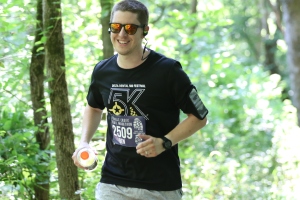Nine Days (2020)
Premise: A reclusive man conducts a series of interviews with human souls for a chance to be born.
Will leads a simple life, and that’s by design. He lives alone, in the middle of a desert, and spends most of his days watching a variety of videocassettes. Occasionally his friend Kyo comes to visit to watch tapes together. None of this is remarkable on the surface, but the purpose behind the tapes is unique. They’re filled with first-person perspectives from various people on Earth going about their everyday lives. Sometimes something significant happens, like a wedding or a bullying incident at school, but most of their time is spent watching, observing, and taking notes.
However, Will, played by Winston Duke, and Kyo, played by Benedict Wong, have another special purpose behind their daily routines: the people in the tapes were all people they had previously selected to be alive. They keep tabs on these people to observe the human experience, in hopes to answer any of the unanswerable questions, like why are we here, and what’s the meaning of living? All of this may sound like pretentious territory, but first-time writer and director Edson Oda delivers it all with confidence and an accessibility that gets to the heart of the matter.
Nine Days unfolds as a pseudo sci-fi drama that feels like it could be right at home in the middle of a Kurt Vonnegut novel (though maybe that’s the superfan in me coming out). Oda uses this high-minded concept to explore Will’s relationship with humans and how one person can help make humanity better. Unlike Kyo, Will had previously been alive, and now sees people differently, almost cynically. The crux of the film concerns Will as he interviews a variety of “people” as he must determine which will be selected to be born. The film gets its title because of the length of time the process takes. He raises various morality questions to understand how they’ll contribute to the world once they’re in it; will they help others or perpetuate society’s ills, or will they be beaten down by the difficulties of life? All of this would weigh heavily on an individual, and Duke rises to the occasion to give a quietly remarkable performance. We never get a glimpse of Will’s time as a human, but Duke implies enough – both through his line deliveries and his sullen body language – to read between the lines.
We spend an equal amount of time with the interviewees (including Bill Skarsgard, Arianna Ortiz, and Tony Hale), but the main focus is Emma (Zazie Beetz), who questions almost everything she’s given and responds to Will’s complex questions with questions of her own. Beetz has struggled to find film roles that suit her capabilities after breaking out on Atlanta, but this is her best performance. None of the interviewees seem to have exterior lives when they’re not with Will, but Emma feels like a fully-realized vision. I could have been fine with an entire film of back-and-forth scenes with her and Will as they question the nature of difficult moralities. Thankfully the story bounces around between the wider cast equally enough to keep me fully invested in each character’s journey.
The “purgatory” world that Will inhabits isn’t terribly fleshed out – where do the applicants come from, what do they do outside of their sessions, what happens to them after they’re rejected – but that’s OK; to spend time on those questions misses out on the point of the film. Similarly, Will becomes transfixed by the tragic end of the life of Rebecca, one of his former selections. He spends his time studying her tapes religiously trying to search for answers. Oda doesn’t give a clear resolution to this subplot, which felt frustrating at first, but can ring true of many tragic events in everyday life.
Nine Days is a refreshingly unique film that announces Oda as an exciting voice with important things to say. The film could have easily slid into familiar sci-fi territory, devoting less time to the more existential issues and more time on structural bureaucracy. And Oda has filled his cast with capable actors, each one contributing their own sensibilities to make their characters feel unique. After initially premiering at 2020’s Sundance Film Festival – where it won the Grand Jury prize and a screenwriting award – the film is finally seeing the light of day, which adds an extra layer of intrigue to the subject matter at hand, after laying dormant throughout the pandemic. Some of the film’s ideas may feel preachy or overbearing for general audiences, but the end result is one of 2021’s most poignantly beautiful, and relevant, films.
Nine Days is now available in select theaters nationwide.
 About the Writer: Ben Sears is a life-long Indianapolis resident, husband, and father of two boys, as well as a contributing writer on ObsessiveViewer.com and a recurring co-host on The Obsessive Viewer Podcast, and a member of the Indiana Film Journalists Association. Aside from watching movies and television, Ben enjoys photography and running marathons, but never at the same time. That would be difficult.
About the Writer: Ben Sears is a life-long Indianapolis resident, husband, and father of two boys, as well as a contributing writer on ObsessiveViewer.com and a recurring co-host on The Obsessive Viewer Podcast, and a member of the Indiana Film Journalists Association. Aside from watching movies and television, Ben enjoys photography and running marathons, but never at the same time. That would be difficult.



 About the Writer: Ben Sears is a life-long Indianapolis resident, husband, and father of two boys, as well as a contributing writer on
About the Writer: Ben Sears is a life-long Indianapolis resident, husband, and father of two boys, as well as a contributing writer on 